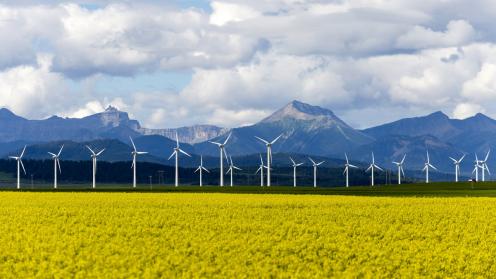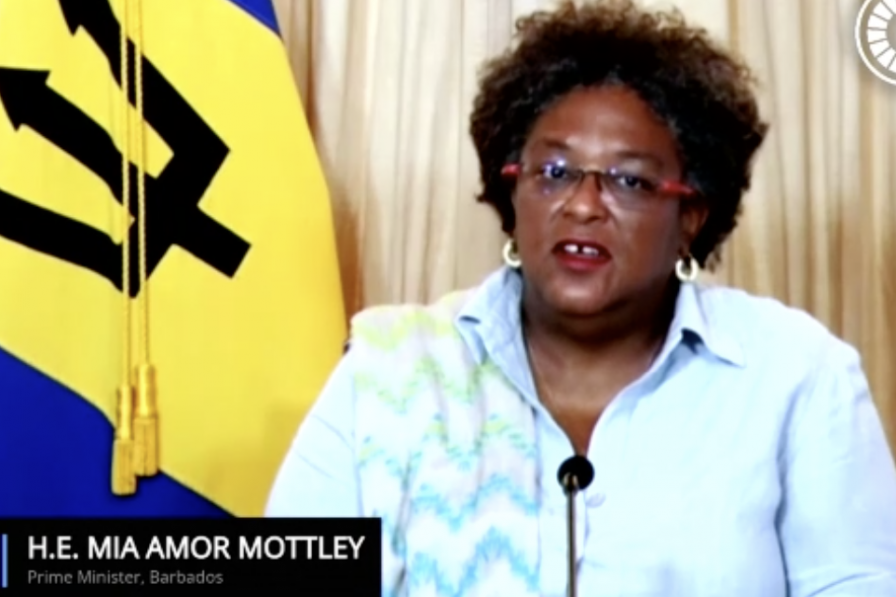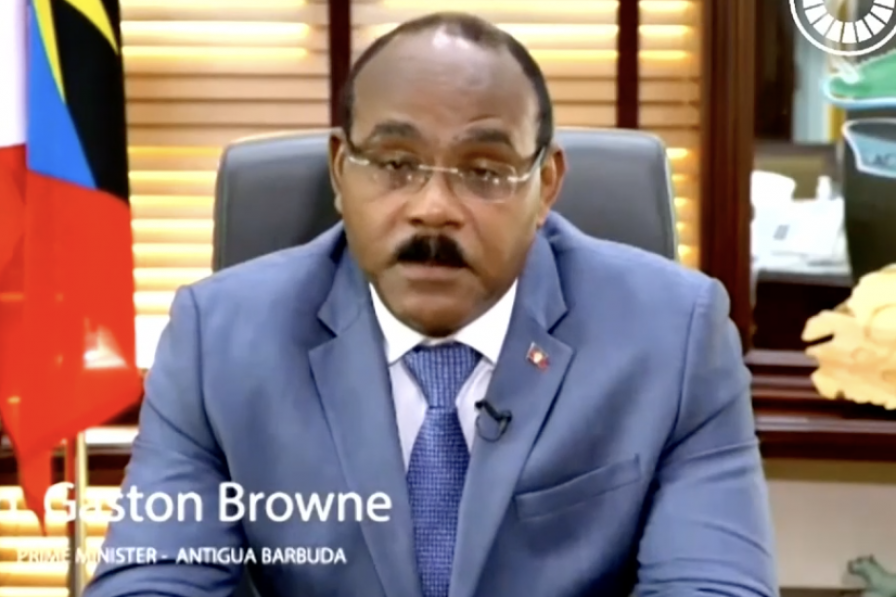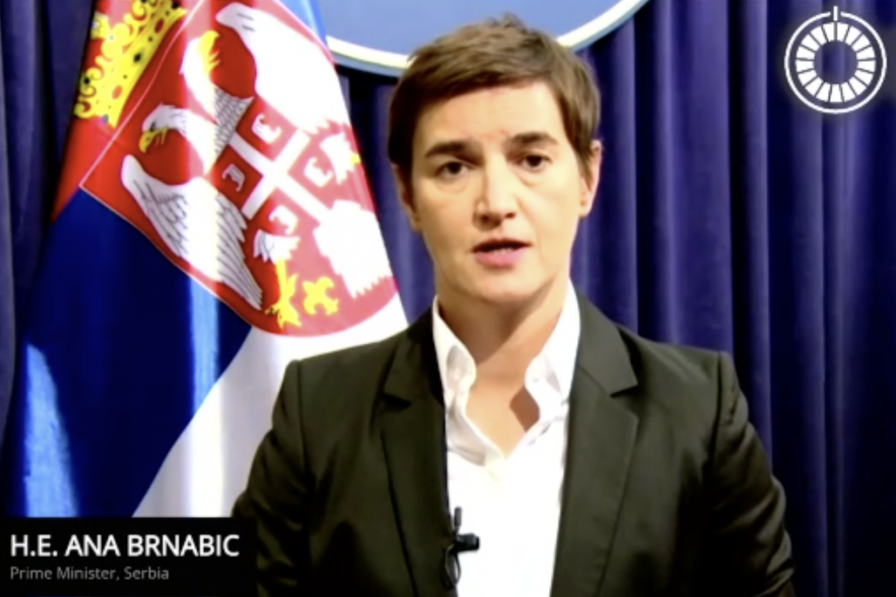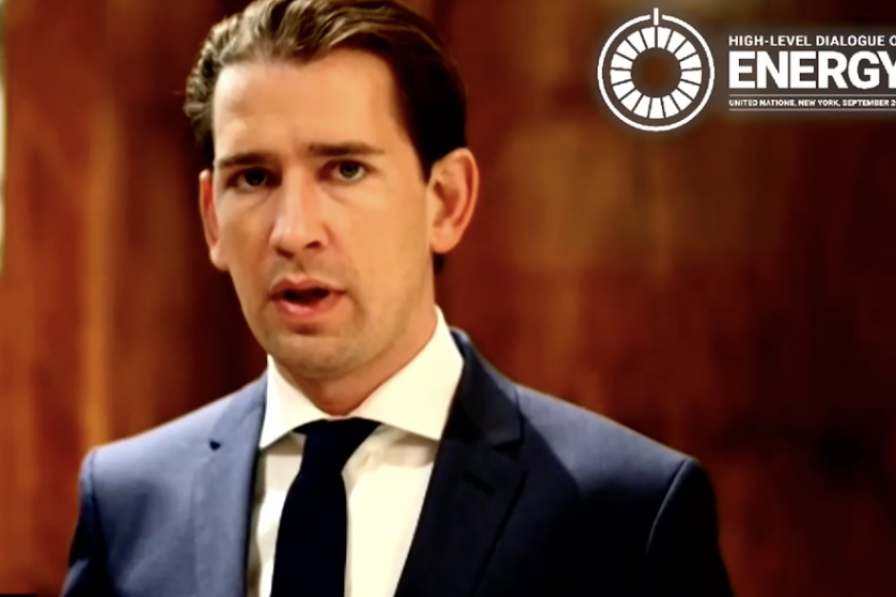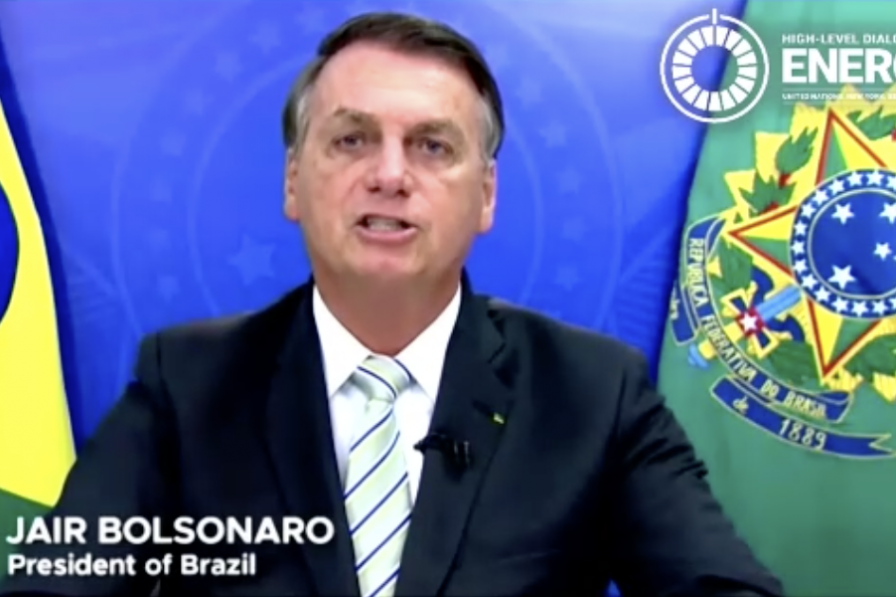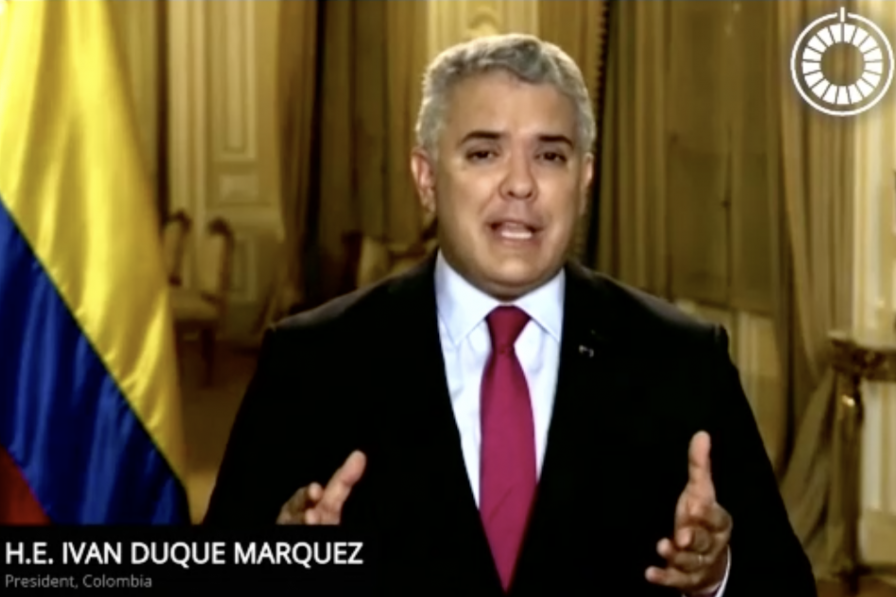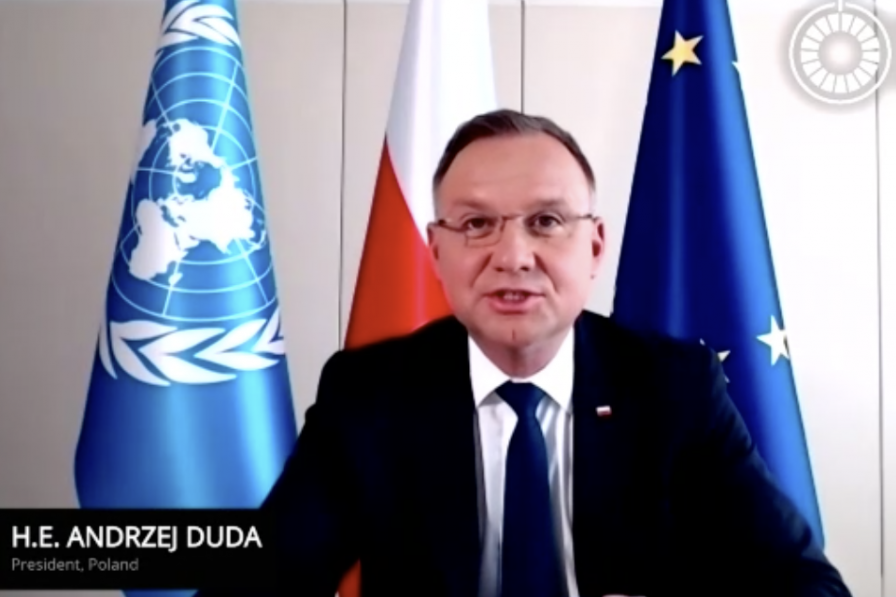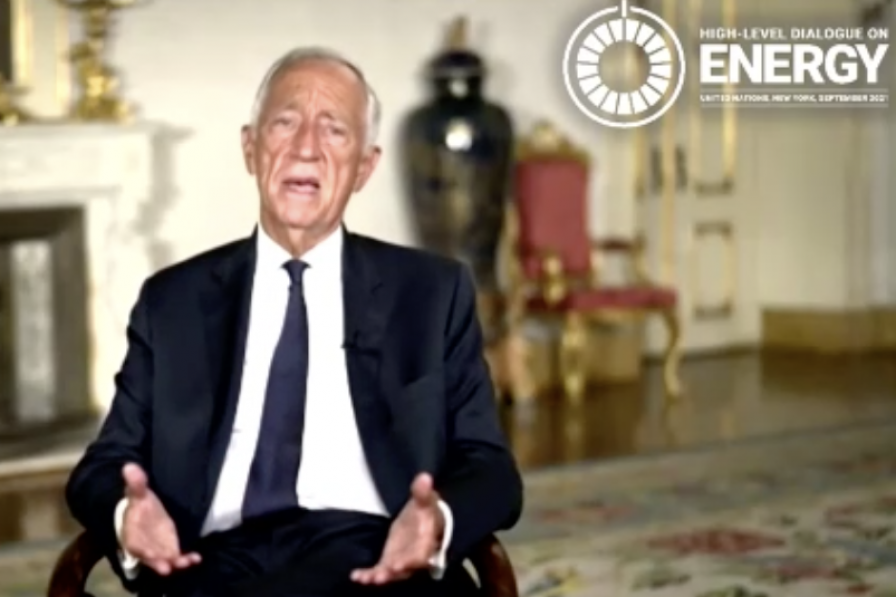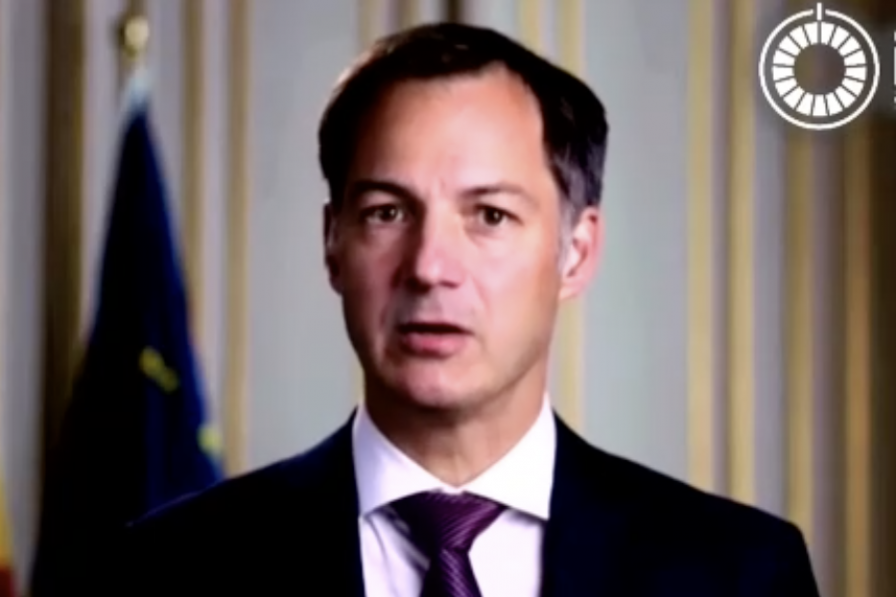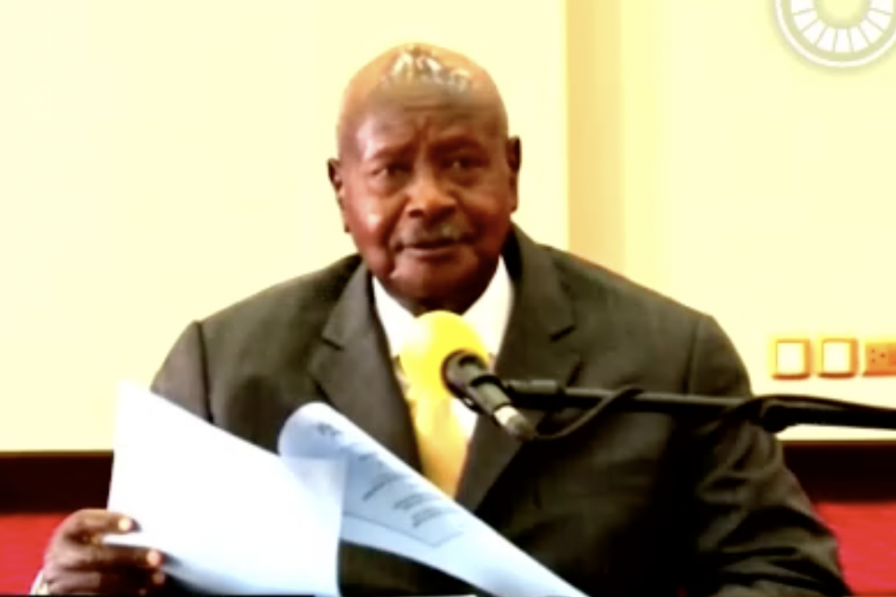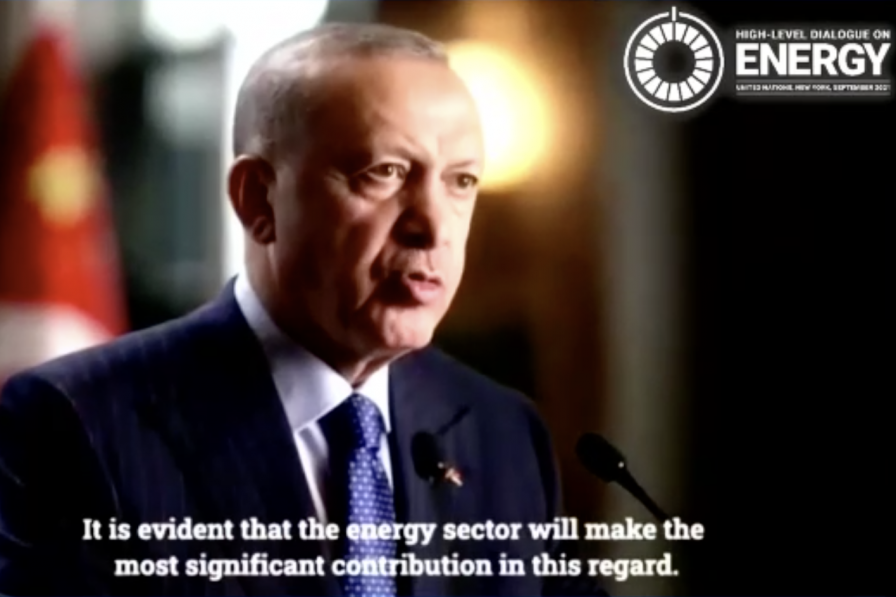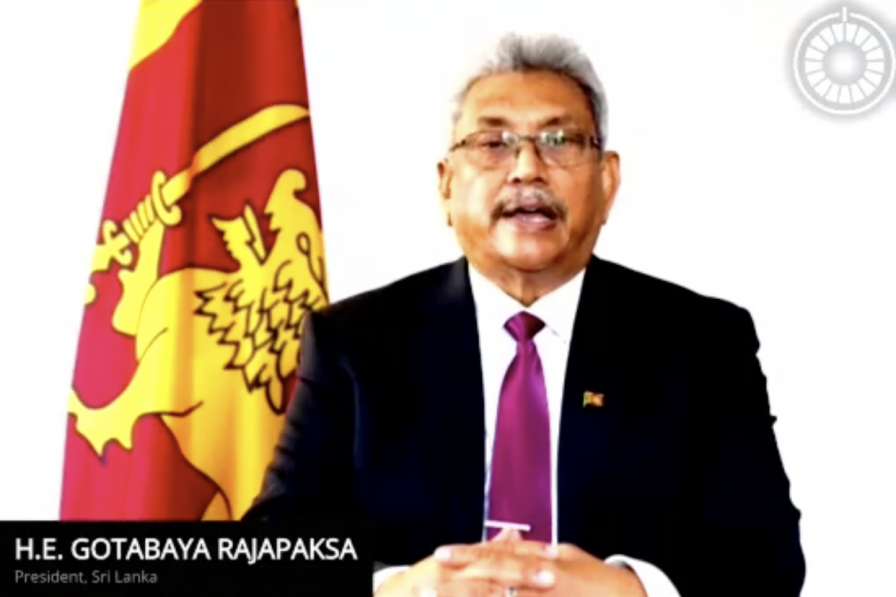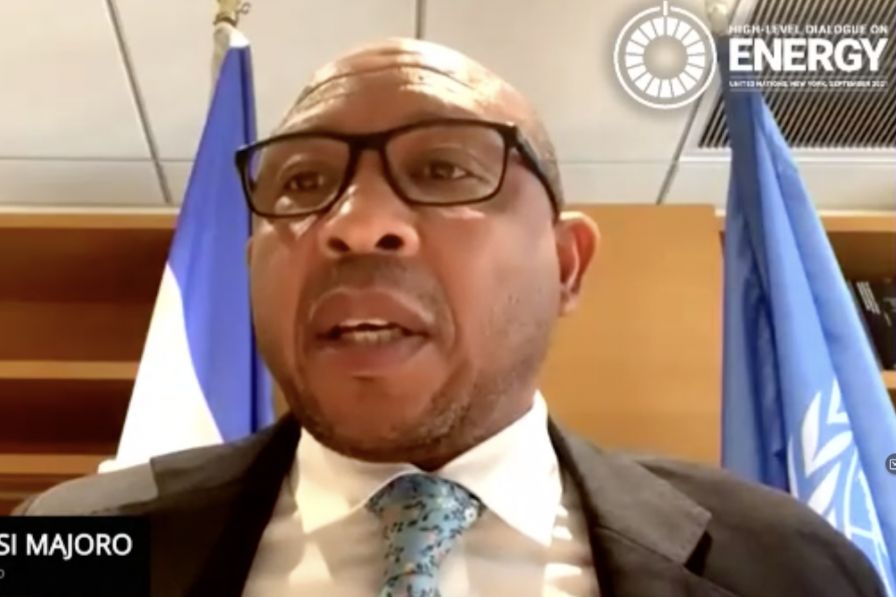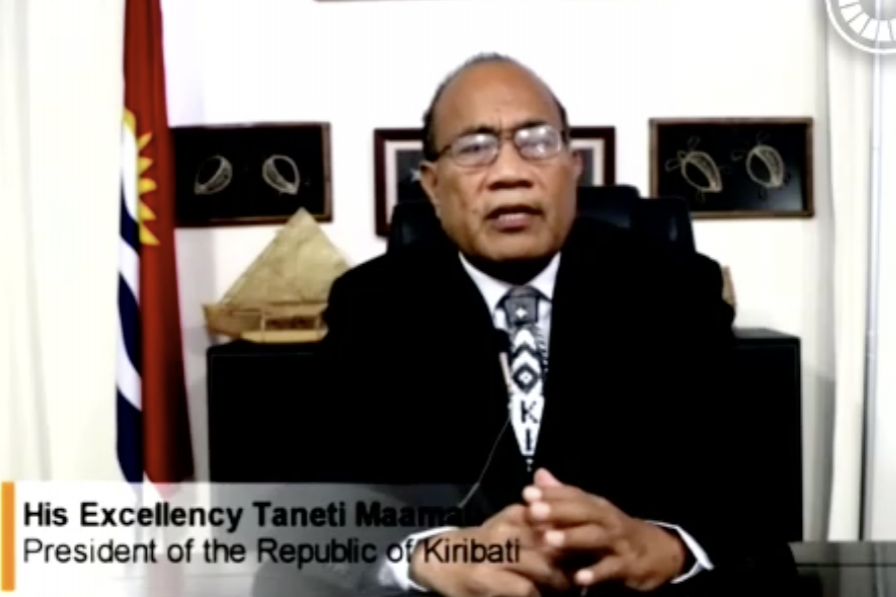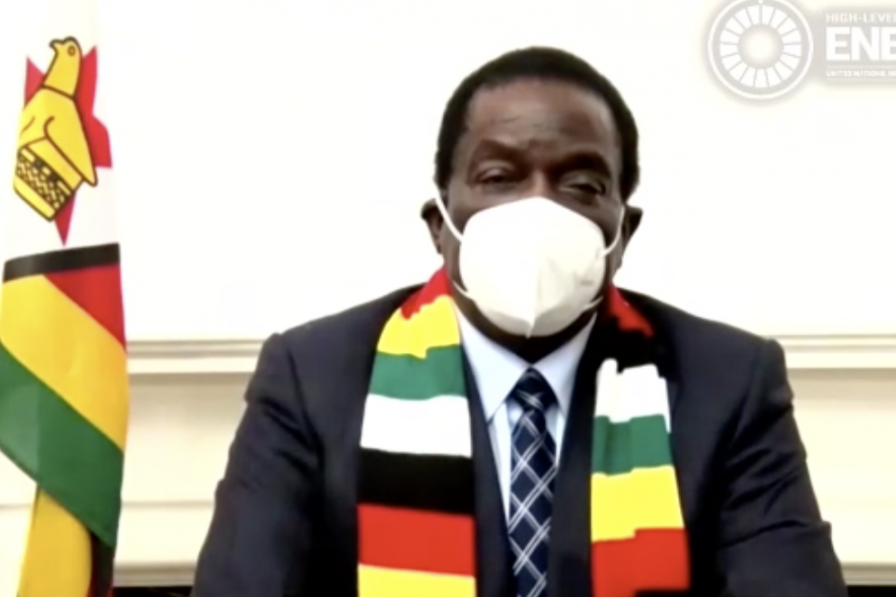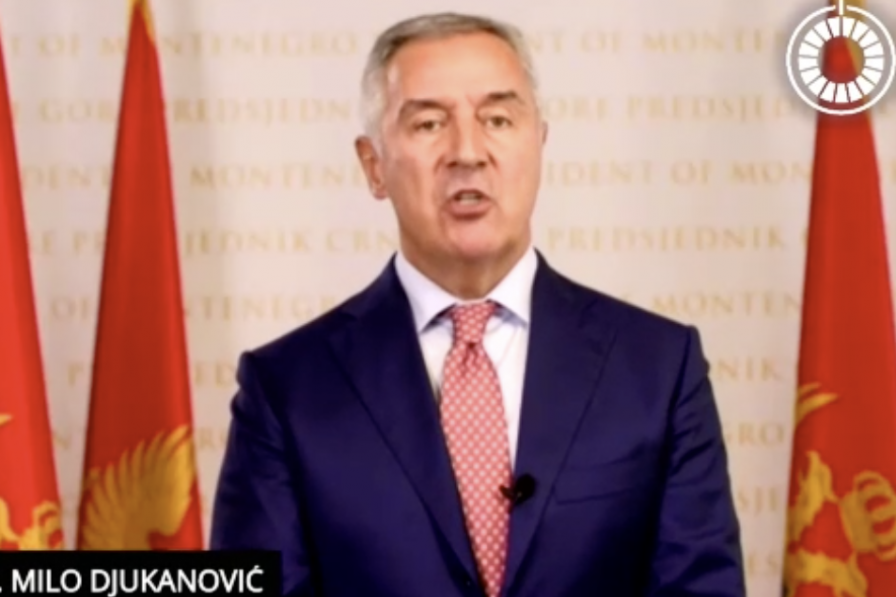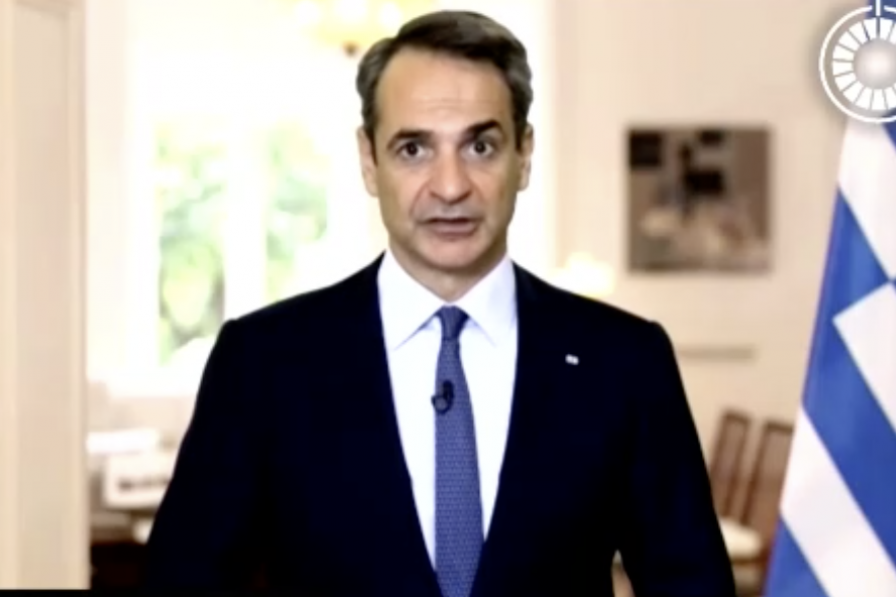UN Secretary-General (UNSG) António Guterres convened the High-level Dialogue on Energy (HLDE) virtually on Friday, 24 September 2021, the first high-level attempt to tackle energy issues under the auspices of the UN General Assembly (UNGA) in 40 years. With 43 heads of state and government and over 100 other high-level leaders from governments, UN entities, other intergovernmental organizations, private sector and civil society seeking to speak, and over 137 commitments called “Energy Compacts” announced, the HLDE demonstrated broad interest in accelerating ambition towards the achievement of Sustainable Development Goal 7 (SDG 7) on sustainable energy and the net-zero emissions by 2050 goal of the Paris Agreement.
Beyond opening remarks by the UNSG, the current UNGA President and others, the day was organized around four “leadership dialogues.” In addition, two special events were held in the middle and end of the day on “raising collective ambition on SDG 7 and climate action.”
Opening
Opening the day’s event, Guterres highlighted four priorities for meeting the SDG 7 and net-zero emissions goals: closing the energy access gap; decarbonizing energy systems; mobilizing predictable finance at scale; and ensuring no one is left behind through a just and equitable transition. Abdulla Shahid, President of the 76th UNGA session, noted that energy is a luxury for millions of people and stressed the need to ensure access to energy.
Chebet Lesan, CEO, BrightGreen Kenya, called for USD 42 billion for the clean cookstove industry to facilitate innovation, build data, and make a strong case for this sector, stressing the need for private sector risk capital. Francesco Starace, CEO, Enel Group, urged aligning pandemic recovery funds with climate transition goals and not financing energy systems that can become stranded assets.
Leadership Dialogues
Accelerating Action to Achieve Universal Energy Access and Net-Zero Emissions: Achim Steiner, Administrator, UN Development Programme (UNDP) and Co-Chair of UN-Energy and the HLDE, chaired this dialogue. Steiner announced UNDP’s commitment to mobilize partners to provide access to clean and affordable energy to 500 million additional people.
Kenya discussed its compact on clean cooking and called for an international day on clean cooking. Malawi reported its compact on clean cooking using biomass cookstoves. Denmark pledged to generate 100% power from renewables by 2028, upscale offshore wind power to 12 GW, and increase climate finance to at least USD 500 million by 2030.
The Russian Federation said its compact prioritizes eliminating energy poverty and reliably providing consumers in all countries with affordable sources of energy and cautioned that climate issues should not be used as an argument when competing for markets. The European Commission reported the EU’s commitment of EUR 4 billion to climate finance for the most disadvantaged countries and its work with the International Renewable Energy Agency (IRENA) to create roadmaps for industrial-scale access to renewable energy for Africa. The Netherlands noted that its compact will support low-income countries’ energy transition and provide a USD 100 million contribution to the Climate Investment Funds.
Japan said it will support SDG 7 by providing technology and innovation tailored to the circumstances of each recipient country. China said it will contribute to global access efforts by sharing Chinese experience and wisdom and innovations in energy storage and hydrogen technologies. Antigua and Barbuda, on behalf of the Alliance of Small Island States, called for shifting fossil fuel subsidies to renewables as a transition measure and highlighted the SIDS Lighthouses Initiative. Austria said it will focus its international energy aid on helping small island developing States (SIDS).
The World Bank underscored its commitment to help client countries achieve SDG 7. The UN Office of the High Representative for the Least Developed Countries (LDCs), Landlocked Developing Countries and Small Island Developing States urged greater international focus on helpings LDCs. IRENA highlighted its compact to mobilize USD 3 billion for financing and implementation of low-carbon and climate-resilient renewable energy projects.
The International Monetary Fund noted its staff proposal for a global carbon price floor. The IKEA Foundation and Rockefeller Foundation discussed their joint commitment to invest USD 1 billion over 10 years to bring distributed renewable energy access to one billion people in Asia, Africa, and Latin America. The City of Makati, Philippines, stressed the role that local and regional governments should play in the energy transition.
Saying he was encouraged by the level of engagement being shown at the HLDE, Liu Zhenmin, UN Under-Secretary-General for Economic and Social Affairs and HLDE Secretary-General, called for scaled-up efforts toward achieving SDG 7. He said key elements of a global roadmap are clear, including: closing the energy access gap for the 760 million who lack access; ensuring clean cooking solutions; scaling up financing for clean energy solutions; leveraging synergies with other SDGs to pursue a just and inclusive energy transition; and dramatically scaling up action.
Ensuring Just and Inclusive Transitions to Leave No One Behind: Damilola Ogunbiyi, Special Representative of the Secretary-General for Sustainable Energy for All (SEforAll) and Co-Chair of UN-Energy and the HLDE, chaired this dialogue. She called on everyone to form an Energy Compact network to build momentum, deliver progress on the ground, and capitalize on renewable energy investments.
Brazil noted its compact to increase production and use of biofuel and create a biofuels carbon market, as well as a commitment to provide solar energy to 100 million indigenous and riparian families. Colombia cited its participation in the Renewable Energy for Latin America and the Caribbean (RELAC) energy compact. Poland cited its action plan to diversify its energy matrix to increase the share of low-emissions sources, including nuclear, as well as natural gas during the transition.
Portugal noted its compact's focus on green hydrogen and its additional contribution of EUR 20 million by 2030 towards safe and accessible energy for everyone. Spain called on countries to take responsibility for energy-poor countries and noted the need for training and new jobs for workers from fossil fuel sectors. Iceland cited its compact to become carbon neutral and independent of fossil fuels by 2050 and noted its intention to propose a geothermal energy compact.
India reported its compact on green hydrogen and increasing and exporting renewable energy. The UK reported its compact commitments on phasing out electricity generation from coal and increased support for wind energy. Nigeria noted its compact commits to provide electricity access to 25 million people by 2023 using solar technologies, but cautioned it would use natural gas for some time to come during the energy transition.
Sri Lanka noted it was co-leader of an Energy Compact for No New Coal Power. Turkey cautioned against “universal and prototyped” solutions and called instead for adapting to each country’s circumstances. Uganda said natural gas will serve as transitional energy and concessional loans are needed for developing countries. Belgium announced it will present its hydrogen vision in the coming weeks and said it will foster partnerships for green hydrogen networks. Lesotho stressed the need for grid extension and off-grid solutions.
The UN Economic and Social Commission for Asia and the Pacific (ESCAP) said its compact will assist ESCAP member countries with energy access, grid connectivity, and investments in renewable energy and energy efficiency. The World Health Organization discussed elements of a strategic roadmap endorsed in June 2021 by the High-level Coalition on Health and Energy. The UN Economic and Social Commission for Western Asia highlighted its compact on enabling the SDGs through inclusive, just energy transitions that are “gender-responsive, locally led, and globally connected.”
Nauru, on behalf of the Pacific Small Island Developing States (PSIDS), called attention to the commitment to achieve 10 gigawatts (GW) installed renewable energy in all SIDS. Norway recalled its recent pledge to provide USD 1.2 billion in funding for renewable energy projects in developing countries over five years. The Latin American Energy Organization discussed the commitment under RELAC to bring renewable installed capacity in the region to 70% by 2030. Papua New Guinea described ways in which it has institutionalized global commitments through national legislation and implementing policies.
Catalyzing Finance and Investment: HLDE Co-Chair Steiner also chaired this dialogue. Saying the USD 400 billion in commitments already catalogued by the HLDE "is just the beginning," Steiner called for scaled-up and innovative financing for sustainable energy. He noted that just 1% of the 400 trillion held by private capital today would be enough to realize the energy transition and called for all to decide on the future they want.
Italy noted its efforts as chair of the G20 to get commitments on climate and energy. Pakistan noted its commitments to reach universal access, double its renewable energy generation, and place a moratorium on coal-fired power plants. Germany said its compact will support partner countries in expanding the use of decentralized energy and green hydrogen.
Kiribati noted it is drafting an energy act to enable more investment in renewables and invited development partners to support “our march to net zero by 2050.” Zimbabwe highlighted its domestic efforts to foster renewable energy and welcomed investment in the sector.
Greece said it plans to switch from coal by 2025 and is seeking to double wind and solar generating capacity by 2030 while increasing energy efficiency efforts. The US said its compact calls for 80% of its electricity to come from clean sources by 2030, with 450 GW from renewable energy, and help to increase access to electricity in sub-Saharan Africa.
The European Investment Bank called for tripling energy investments in developing countries and emerging markets by 2030. The International Energy Agency (IEA) noted its global roadmap showing it is possible to achieve deep emissions reductions alongside the SDGs and universal access to clean, modern energy by 2030. The C40 coalition of cities requested national governments’ support for C40 cities to reduce emissions to net zero by 2050. The UNSG's Special Envoy to the 2021 Food Systems Summit highlighted the importance of the food-energy nexus. The Green Climate Fund called for ambitious decarbonization across all sectors and noted its efforts to accelerate the energy transition.
Scaling up Action through Energy Compacts: HLDE Co-Chair Ogunbiyi also chaired this dialogue. She noted 137 Energy Compacts submitted as of the prior week but called for more ambition on clean cooking and other commitments and action on the ground in the coming nine years to achieve SDG 7.
Nauru said it would submit a compact to increase to 50% its renewable energy capacity. The Dominican Republic said it supports the commitment to achieve carbon neutrality by 2050. Chile said it is committed to closing coal plants by 2040 and will electrify its urban transport by 2035.
Finland said it aims to be climate neutral by 2035. Honduras reported it had submitted 13 Energy Compacts. Mauritius said it would phase out coal plants by 2030 and urged finding ways to recycle all renewable energy equipment. Morocco said it seeks to be a key actor in green hydrogen. The United Arab Emirates highlighted that the UAE is home to three of the largest solar plants in capacity.
Panama highlighted its compact on innovation contests to support SDG 7 and energy transition. Montenegro reported it had updated its Nationally Determined Contribution (NDC) for the upcoming 26th Conference of the Parties (COP 26) of the UN Framework Convention on Climate Change (UNFCCC). Barbados said coal “must go immediately” and encouraged all to move toward more renewable energy and rapid decarbonization.
Serbia highlighted new installed renewable energy capacity and a law permitting citizens to put solar on their rooftops. Thailand has a bio-circular green plan and aims to have 30% electric vehicles by 2030. Moldova reported it has updated its national energy efficiency legislation.
The Food and Agriculture Organization of the UN (FAO) emphasized the need for innovative, clean energy solutions to achieve SDGs 7 and 2. UN HABITAT called for more focus on energy access for the urban poor. The UN Industrial Development Organization called for green hydrogen in industry and support for developing clean solutions that support green incomes.
Ethiopia said its compact seeks universal energy access by 2030 and increasing biogas access for clean cooking. Lebanon reported its compact will increase use of renewable energy and natural gas. The African Development Bank noted it is putting USD 7.2 billion into energy access and increasing Africa's renewable energy generation. Google noted its compact with SEforAll to drive investment in carbon-free grids.
Closing of the Leadership Dialogues
HLDE Secretary-General Liu and UN Deputy Secretary-General Amina Mohammed closed the leadership dialogues on behalf of UNSG Guterres. Liu said that because of the level of energy and commitment shown at the HLDE, he has come away with new optimism about the prospects for reaching SDG 7. He reported that the UNSG's summary of the HLDE will contain a roadmap. He praised the Energy Compacts for “setting the bar high,” and said UN-Energy will continue to support mobilization of more Energy Compacts in the years to come.
Mohammed said the HLDE was just the start of a nine-year journey. She stressed four pillars of the effort to kickstart action toward achieving SDG 7: closing the energy access gap; decarbonizing the energy sector; mobilizing predictable finance at scale and promoting the transfer of technology to the developing world; and leaving no one behind.
Special Events on Raising Collective Ambition
At midday a roundtable on raising collective ambition was moderated by Nisha Pillai, followed by a series of statements by national ministers from Algeria, Bangladesh, Cambodia, Costa Rica, Côte d’Ivoire, Mali, Namibia, Oman, Papua New Guinea, and Senegal.
The evening special event featured a series of statements by Ministers and other representatives of various countries that have not yet proposed an Energy Compact, including Bahrain, Burkina Faso, Cuba, Cyprus, Egypt, El Salvador, France, Ghana, Guyana, Holy See, Ireland, Israel, Kazakhstan, Maldives, Micronesia, Mongolia, Mozambique, the Philippines, the Republic of Korea, Rwanda, Seychelles, and Sudan.
Liu declared the HLDE closed at 8:06 pm EDT.
To receive free coverage of global environmental events delivered to your inbox, subscribe to the ENB Update newsletter.
